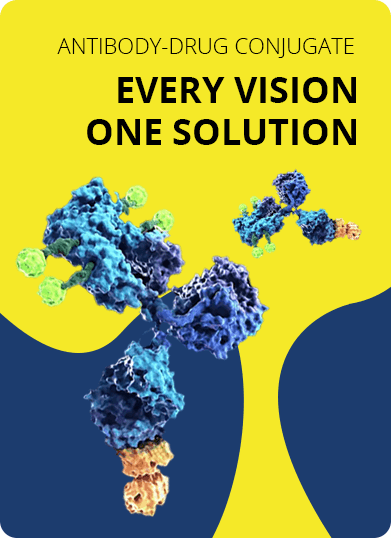- Home
- Applications
- Lymphoma
- Diffuse Large B-Cell Lymphoma
ADC Development Services for Diffuse Large B-Cell Lymphoma (DLBCL) Research
Diffuse large B-cell lymphoma (DLBCL) is one of the most common types of lymphoma in the worldwide, conventional treatment only be fit for young patients, and long-term survival is rare. New therapeutic strategies are required for refractory or relapsed patients due to limited treatment options with unsatisfying results. Antibody-drug conjugates (ADCs) are showing promise in the cancer treatment that can increase the efficacy and decrease the toxicity in comparison with traditional cytotoxic drugs. Empowered by advanced technology platforms and experienced technical personnel, Creative Biolabs is fully competent and dedicated to providing your one-stop ADC development service for DLBCL therapy.
Introduction of DLBCL
DLBCL is the most frequent form of the aggressive non-Hodgkin lymphoma, accounting for approximately 30-58% of cases. The majority of cases of DLBCL occur in de novo, while some develop from indolent lymphoma. DLBCL can be subclassified as germinal center B-cell-like (GCB) or activated B-cell-like (ABC) subtypes based on gene expression profiling. Generally, the ABC subtype shows a worse prognosis than the GCB subtype. The symptoms of DLBCL are often characterized by fever, drenching night sweats, weight loss, belly or chest pain or pressure, shortness of breath or cough and itching. DLBCL has been found in all age groups except for the very young. To date, the etiology of this lymphoma is unknown for most patients. Some risk factors include immunosuppression (such as the AIDS or autoimmune diseases), ultraviolet radiation, pesticides, hair dyes, and diet. A subset of DLBCL disease is highly associated with the EBV virus.
What Can We Do for You?
ADCs can selectively deliver cytotoxic drugs to cancer cells to increase the percentage of drug molecules, thus lowering the minimum effective dose and increasing the maximum tolerated dose. For the DLBCL treatment, ADCs could be a potential therapeutic strategy, which have been under actively investigated. At present, Creative Biolabs provides customized ADC design and development services for the DLBCL disease. Our high-quality products and services will promote the progress of your ADC development projects. Please contact us for more information and a detailed quote.
Targets of Creative Biolabs's ADCs development services against DLBCL:
For Research Use Only. NOT FOR CLINICAL USE.

Online Inquiry
Welcome! For price inquiries, please feel free to contact us through the form on the left side. We will get back to you as soon as possible.
